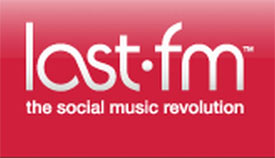 Some readers out there in Rifftopia might consider your ridiculously-named contributor to be an ahead-of-the-curve proponent of bleeding-edge technology. But nothing could be further from the truth. To be honest, I’m like a curmudgeonly grandpa, grudgingly forcing myself to take up new software and gadgets only after their obvious usefulness has finally seeped through my thick skull, and even then it’s a real effort. Crimeny, I didn’t have a MySpace page until 10 months ago, and I was the last one of my Nebraska family to even get a cell phone. Pathetically lazy or just wary, I’m no “early adopter.”
Some readers out there in Rifftopia might consider your ridiculously-named contributor to be an ahead-of-the-curve proponent of bleeding-edge technology. But nothing could be further from the truth. To be honest, I’m like a curmudgeonly grandpa, grudgingly forcing myself to take up new software and gadgets only after their obvious usefulness has finally seeped through my thick skull, and even then it’s a real effort. Crimeny, I didn’t have a MySpace page until 10 months ago, and I was the last one of my Nebraska family to even get a cell phone. Pathetically lazy or just wary, I’m no “early adopter.”
So after much hesitation, I finally signed up on Last.fm, the web site that tallies users’ listening habits in the same way SoundScan adds up CD sales. You download a little widget, then anything you listen to in iTunes, for instance, pops up on your profile page. Your “spins” are also added into Last.fm’s system-wide charts. It’s kind of like a do-it-yourself Nielsen ratings system for music.
At first, it was exciting. Last.fm sorted (or as they put it, “scrobbled”) through my recent iTunes listening history and made a neat little chart. Unsurprisingly, my most listened to artist turned out to be Radiohead, who also occupied the top spot on the site-wide artist chart until Coldplay knocked them down to #2 last month. It’s easy to see why: Radiohead’s target demographic of computer-savvy geeks are more likely to download a Last.fm widget, and more importantly, In Rainbows was only available as mp3s for months, meaning most listens happen on the computer. Way to work the system, Radiohead.
But now, the site is starting to give me the creeps. Last.fm home pages show a running tally of what you’ve listened to and when, and while I have no evidence anyone’s actually looking at mine, it’s affecting my listening habits. If I’ve got a hip new album by Quiet Village or Santogold playing, and I have to run to the store across the street, I catch myself thinking, “I’ll just let it play and up my spin count.” Conversely, checking out the new Coldplay album to review it for the Riff plopped that band right into my Top 15. Yeech! The shame, it burns!
Now I’m even more careful when I click “play.” My dad has me on the lookout for new music he might like, so yesterday I downloaded the new Oren Lavie to burn a CD for him. Then I thought, why not give it a listen myself? I was kind of enjoying it, even though it’s profoundly sappy and super wimpy and tear-jerky. Then I suddenly remembered: everyone can see me listening to this stuff! Pause, pause, pause!
Welcome to the Observer Effect, the well-known psychological phenomenon where one changes one’s behavior due to the awareness of being observed, otherwise known as “reactivity.” When the phenomenon pops up in an experiment, it might skew the results, but with Last.fm, it’s screwing with my life, the soundtrack to my blogging, laundry folding, cocktail drinking. Remember the good old days, when I’d just listen to whatever I felt like? On the other hand, seeing my musical habits all tallied up has reminded me to put albums on that I’d been meaning to spend more time with, so maybe a little self-awareness isn’t such a bad thing. Thankfully, I still have secrets: Last.fm can’t see what goes on my record player. Hooray, I have Hall ‘n’ Oates on vinyl!
So, Riffers, where do you draw the line with revealing yourself to the world wide web, and how has it affected your behavior?











